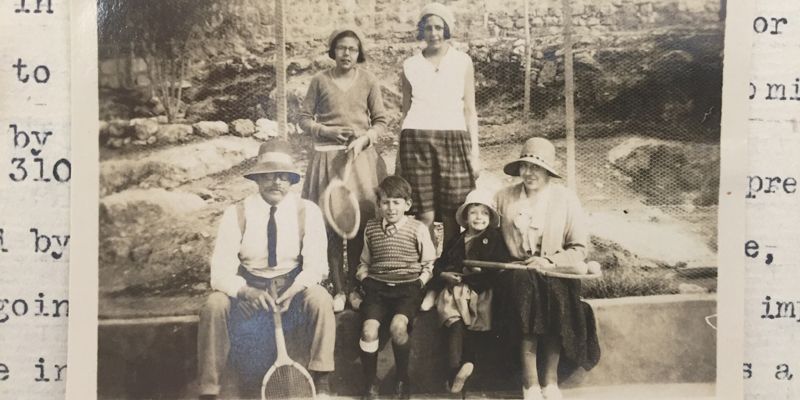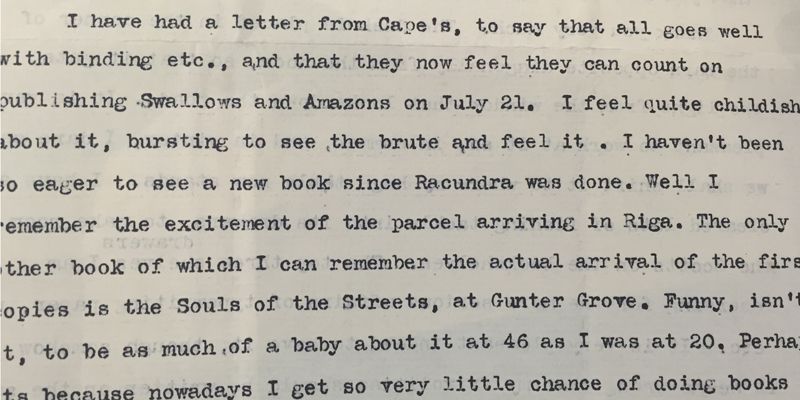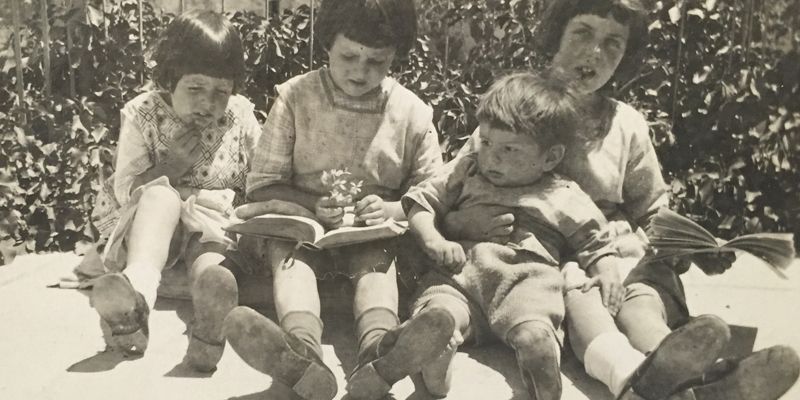
It is one of the most popular children’s stories of all time and has sold millions of copies, but letters by the author of Swallows and Amazons reveal his doubts about the book’s prospects.
Like the subsequent 11 children’s books written by Arthur Ransome in the series, Swallows and Amazons – a story about the Lake District sailing adventures of the Walker and Blackett children – has never been out of print. It is the subject of a new film adaptation released in cinemas this week.
However, candid letters which now form part of the unrivalled Arthur Ransome Archive at the University of Leeds describe how the then freelance journalist feared he would never make a living from his books.
In a letter to his mother Edith in Leeds sent shortly before Swallows and Amazons was published towards the end of 1930, he wrote: “I don’t think any book of mine will ever be a popular and remunerative one.”
And earlier that year, while still completing the book – and contemplating a new job as a leader writer with The Guardian – Ransome wrote: “I don’t start [?riting] Saturday articles for a month, in order to get Swallows done. After which I fear my career as a writer ends and I collapse into the Guardian office.”
But with the manuscript sent to the publisher and publication date approaching, by July that year he appears more positive, writing from his home in the Lake District: “I feel quite childish about it, bursting to see the brute and feel it. Funny, isn’t it, to be as much of a baby about [the publication of a new book] at 46 as I was at 20.”

Nevertheless, Ransome tells his beloved mother he has in the meantime begun working on a book of Russian fairy tales for the following year, adding gloomily: “Though if Swallows fails, I suppose Cape won’t be so keen to have it.”
His mood seems lighter by November, despite health problems stemming from a stomach ulcer. He describes a royal vote of confidence in the new book, purchased from an Oxford Street shop.
“The Queen, God Bless Her, pranced into Bumpus’ shop and bought a copy of Swallows and Amazons. She paid cash for it. If only all loyal persons follow her Majesty’s example, I shall be able to get cured without any worry.”
Ann Farr is a trustee of The Arthur Ransome Society and a retired academic librarian from the University of Leeds, which has the Arthur Ransome Archive among its Special Collections.
She said: “It’s not uncommon for authors to be somewhat insecure when it comes to book sales. In fact, Special Collections also contains a letter to Ransome from former University of Leeds staff member JRR Tolkien expressing very similar concerns about early sales of The Hobbit.
“But the letters from Ransome to his mother in the collection, which number 300 or so, give a really rather charming insight into a man whose real thoughts historians have found hard to pin down.”
The letters to Edith are among thousands of other items of correspondence, diaries, notebooks and other literary manuscripts, together with more than 5,000 photographs in the archive at Leeds. Ransome was born in the city, and his father taught at Yorkshire College – a forerunner of the University.

Among these photographs are snapshots of the siblings who inspired Swallows and Amazons after Ransome spent a summer helping to teach them how to sail. He even used the names of three of the Altounyan children – Susan, Roger and Titty – for his fictional characters.
In the video below, Ann Farr discusses the appeal of Swallows and Amazons on Made In Leeds TV.
Credit: Made In Leeds TV
Further information
For further information, please contact University of Leeds Media Relations on 0113 343 4031 or email pressoffice@leeds.ac.uk
Images © Arthur Ransome Literary Estate/Leeds University Library show: (top image) Arthur Ransome (left) with four of the five of the Altounyan children and their mother, Dora, in Syria in 1932.
Special Collections
The University boasts one of the finest collections of rare books and manuscripts in the world in its Special Collections, housed in the Brotherton Library. It is the only library to have five of its Special Collections awarded Designated Status – recognised as collections of outstanding international importance – by the Arts Council. The breadth of the subjects is exceptional, from exquisite photographs of pre-revolutionary Russia to books dating from the beginning of printing, as well as the archives of some of the 20th century’s most influential poets and writers, and much more.